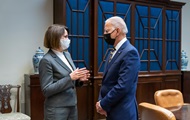Why do some people not go for treatment when they need it? The question is not anecdotal. In 2017, for lack of having taken the step to seek a professional, 3.1% of the French population over 16 years of age, i.e. 1.6 million people, was unable to meet an identified health need. To help the public authorities respond to this public health issue, Aude Lapinte and Blandine Legendre, researchers at the Research, Studies, Evaluation and Statistics Department (DREES), cross-referenced the explanatory factors. “Giving up healthcare is often the result of the interweaving of multiple factors, they point out in a study published this week, which aims to “Identify possible cumulative effects. “
Poverty is the first explanation for renunciation. The people concerned “Have a median annual standard of living 2,000 euros lower than that of patients who have consulted their doctor whenever they need to. Twice as many as the others live below the poverty line and three times more often poor in living conditions (housing difficulties, late payments, consumption restrictions, etc.) ”, explains the study. In other words, living below the poverty line multiplies the risk of not going for a consultation by 1.6. Poverty in living conditions, which is different from monetary poverty (60% of median income) because it is calculated on the basis of 30 deprivation criteria, has an even stronger impact: it multiplies by 3.2 the risk of giving up get treatment.
Very heterogeneous situations
But it is when they combine with other factors that the effects of poverty are most devastating. Thus, for the entire population, the fact of living in an area that lacks health professionals increases the risk of giving up health care by a factor of 1.8. “This result nevertheless hides very heterogeneous situations, warn the researchers. In people with poor living conditions, this risk is multiplied by 3.5. “ And when accessibility is very low, the figure even jumps to 7.94. This particularly strong cumulative effect for precarious people is explained by the fact that they have “Overall more rigid professional constraints”, and may therefore have more difficulty in mobilizing resources such as time or mobility to compensate for access difficulties. On the other hand, the risk is almost zero for people in a situation of monetary poverty.
The importance of social ties
If the combination between poverty and remoteness is decisive, other factors also come into play to explain the foregoing care. Starting with isolation. People with poor family relationships are 2.3 more likely not to see a doctor when the need arises. It is 1.5 for those who do not have good friendships. This link is explained by the fact that social capital “Can be mobilized to support a care process and counter financial or organizational obstacles in access to this care (childcare, driving, encouragement to follow-up, etc.)”, notes the Drees. In contrast, age or having a long-term illness lowers the level of quitting. The same applies if one benefits from complementary health insurance. Those who have this coverage, which has developed among precarious populations since the creation in 2000 of the CMU-C, give up 4.5 times less treatment than those who do not.
–

